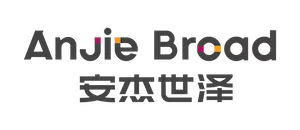China has been in lack of a comprehensive regulation governing online game industry in general since July 2019, when the Ministry of Culture and Tourism ("MOCT") formally abolished the Interim Administrative Measures on Online Games promulgated by it in 2010. Since the National Press and Publication Administration ("NPPA") became China's sole regulatory body of online game business in early 2019, it has released a number of policies to guide and regulate the market on different aspects, in particular, on minor protection. However, due to the absence of an overall regulatory framework, the NPPA's specific requirements and their legal consequences are less systematic and sometimes blurry.
One Dec 22, 2023, the NPPA released the long-awaited draft Online Game Administrative Measures ("Draft Measures") to solicit public comments by Jan 22, 2024. Despite of the immediate concerns and controversies raised by gaming companies and other stakeholders, the introduction of a comprehensive regulation in game industry will undoubtfully fill the legislative gap and create more regulatory certainty.
Two Major Participants: Publishing Entity and Operating Entity
As game-specific approval (aka, ISBN) is a key administrative measure that the NPPA takes to regulate online game market, therefore the NPPA divides its administrative dimension into two stages, namely prior-launch approval and after-launch supervision. It follows that the NPPA imposes regulatory duties on two entities: a game publishing entity ("Publishing Entity") that must have an Internet Publishing Permit ("IPP") in order to file an application for the ISBN to the NPPA and a game operating entity ("Operating Entity") that must have an ICP License in order to distribute and operate an approved game. Such an approach follows the way the NPPA regulates traditional publishing business where a publishing house (comparable to a Publishing Entity) is in charge of the review and censorship of the content of a book, while bookstores (comparable to an Operating Entity) are in charge of the distribution of books. Though the split of the roles in game market does not make too much sense, such approach has been adopted by the NPPA for many years and is widely viewed as a "Chinese feature" in the regulatory landscape.
However, under such model, the NPPA feels its hands are tied when administrating Operating Entities, because an ICP License is granted by the Ministry of Industry and Information Technology. In other words, the NPPA is unable to impose any administrative power through a license or permit that an Operating Entity must have and maintain for its game operation activities. To close this loophole, the Draft Measures require a Publishing Entity must have an IPP with the business scope of online game publishing ("IPP-Publishing") issued by the NPPA and an Operating Entity must have an IPP with the business scope of online game operation ("IPP-Operating") issued by the provincial branch of the NPPA. The conditions for obtaining an IPP-Publishing are same as the requirements under an existing higher-level regulation, including having 8 qualified editors, which remains a high bar that most game companies are unable to satisfy. The conditions for obtaining an IPP-Operating are no stricter than the requirements for an ICP License that most game companies can meet. Thus, if the Draft Measures are finalized in current form, most gaming companies will simply need to go through some formalities to have an IPP-Operating. Apparently the newly introduced IPP-Operating is not meant to make it more difficult for companies to enter the market, but to bring them into the NPPA's license/permit system so that to closely influence, monitor and rule them in relation to their game operation activities. By the same token, the Draft Measures also require that the change of registered matters, shareholding structure or ultimate controller of an IPP-Publishing/IPP-Operating holder, as well as the merger or split of the company or the setup of a branch should be subject to the NPPA's approval. Moreover, an IPP-Publishing/IPP-Operating holder should submit annual report to the NPPA's provincial branch according to the Draft Measures.
The Draft Measures also emphasize that an IPP-Operating or IPP-Publishing holder must make sure its servers are located in China, which is required by other relevant laws and regulation.
No Harmful Content in Games Published Outside of China
The Draft Measures list forbidden content in games, which has no substantial difference from the existing legal requirements and policies. However, the Draft Measures necessitate Chinese gaming companies to comply with those forbidden content in games targeting non-China users, which is quite controversial considering the NPPA should have no direct jurisdictions over those overseas game publishing activities.
Game Launch within 1 Year After Grant of ISBN
The Draft Measures require a game should go live within 1 year after the issuance of the ISBN, otherwise the Publishing Entity and/or the Operating Entity should explain the reasons in writing to the NPPA's provincial branch, so that to prevent any company from stocking up ISBNs for any potential illegal use.
No Forced PvP
According to the Draft Measures, users can not be forced to play any PvP mode. In fact, such requirement was adopted by the MOCT before, thus most gaming companies are quite familiar with it and already have solutions to make players to "voluntarily" take part in duels. SLG games are most likely be affected by this requirement.
No Circumvention for Beta Test and Ad-only Games
The Draft Measures target to close loopholes for unlicensed games made available to the public in the name of a Beta test or ad-only games. If a company intends to do any technical test for an unlicensed game, then testers involved should be no more than 20,000, and the tester's account and game record should be deleted, in addition, such test should be reported to the NPPA's provincial branch in advance.
No Excessive Spend
The Draft Measures forbid rewards that may induce game addiction or excessive spend, such as for daily log-in, first time purchase or consecutive purchases. To hype or auction virtual items in order to offer them at a high price is also prohibited. In addition, game companies are required to put a cap on in-game spend, articulate the spend limitations in their terms of services and remind users not to spend excessively in pop-up windows.
Apparently, these rules are intended to prevent gaming companies from using the most commonly seen incentive mechanisms to enhance users' engagement and urge to spend, they immediately became the most controversial part in the Draft Measures. Some companies argue such harsh restrictions are unfair and unnecessary, as similar incentives are widely used by other online businesses, and to encourage users to spend more time or money is determined by the nature of all online business. It's worth noting that these limitations on in-game spend and live operations will be applicable to adult users only, since minors are subject to much stricter in-game spend limits and game hour restrictions in China. Such new rules may greatly change most game companies' monetization model and user engagement practice once they are formally promulgated.
No Payment Services for Unlicensed Games
To curb commercial operation of any unlicensed game and illegal game operations, the Draft Measures disallow online payment solution providers to integrate their payment services in any unlicensed games or offer any payment services for any illegal game operation activities.
Trading of In-game Currency
The Draft Measures prohibit a company that issues in-game currency from setting up or operating any platform to facilitate the trading of the in-game currencies by users. A in-game currency trading platform can only allow users to use real-name digital RMB when purchasing or selling in-game currency.
Minor Protection
Considering China has already put in place the strictest rules in the world to prevent minors from game addiction, the Draft Measures stipulate these measures in greater details. In addition to reiterating the existing requirements, the Draft Measures prohibit minors' access to loot box mechanisms and minors' tipping in live streaming of games, which are not mentioned in any regulatory policies before. It is unknown whether game companies will be required to launch minor only version if loot box is used in gameplay.
Administrative Punishments
Though there are quite lengthy provisions on the consequences for violating the Draft Measures, no new administrative punishment is created due to the relatively low level of this piece of legislation. However, the Draft Measures quote and consolidate the administrative punishments under other relevant laws, such as China's Cybersecrutiy Law and Personal Information Protection Law, which contain quite high administrative fines and make the Draft Measures look much stricter on the legal consequences.
Aftermath
The release of the Draft Measures caused a great deal of concerns and worries about the business of gaming companies that mainly make money from China market, and reportedly led US$80bn in market value being wiped off from China's two biggest companies, Tencent and NetEase. The NPPA did not seem well-prepared for such a huge wreck in stock markets and immediately made 3 moves to soften its stance: on Dec 22, it announced the approval of 40 foreign game titles during the trading hours, just a few hour after the release of the Draft Measures; on the next day (Saturday), it responded to the market reaction that the Draft Measures are meant to promote the prosperity and healthy development of the industry, and it will carefully study the feedback and try to improve the next draft; on Dec 25 (Monday), it unprecedentedly granted 105 domestic game approvals in early morning with a clear intention to boost confidence in the stock market.
Outlook
As a draft of new legislation seeking public opinions, the Draft Measures still seem relatively rough and premature considering quite some provisions are less logically sound or too vague/general to put into implementation. Given the drastic reaction in the market and the NPPA's prompt attempt to change its position, it may take some time for the NPPA to address the concerns of various stakeholders and come up with the next or final version of the Draft Measures, which is expected to, on the one hand, demonstrate the regulator's attitude to encourage more innovative and high quality games, on the other hand, avoid creating the impression that the regulator may try to crack down game industry.
The content of this article is intended to provide a general guide to the subject matter. Specialist advice should be sought about your specific circumstances.

